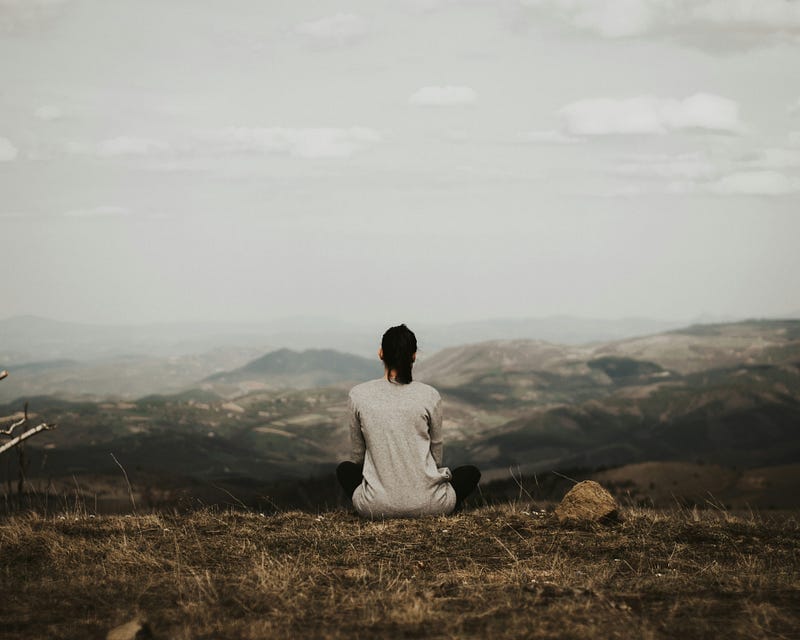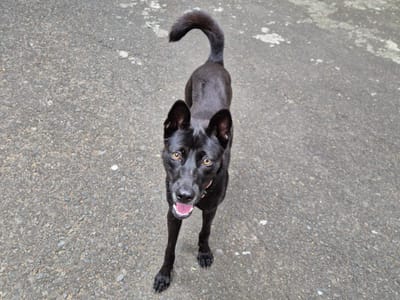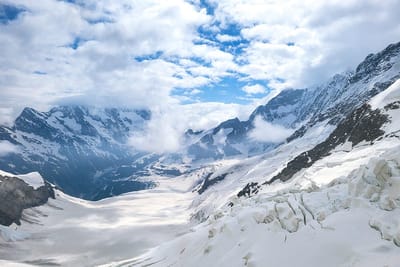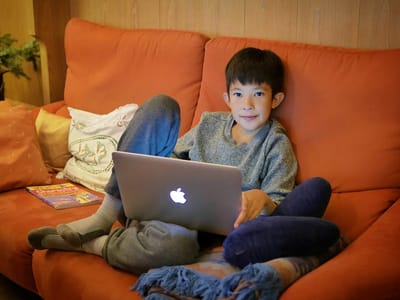Ten Days, No Talking: Uncovering the Noble Truth in Silence

I've never written publicly about this before. I used to think I had no real "tips" to offer. Advice, after all, implies a kind of distance. It would be like offering a travel guide to a place no one can visit the same way twice. But I've now sat eight ten-day Vipassana meditation retreats—beginning in my twenties—and each one has rewritten something in me. If you're reading this, you're probably considering it yourself. You already know the outline: silence, solitude, ten days, no talking, no eye contact, no escape.
And yes, it's strange. Unnerving, even. You will be sitting with your breath, your thoughts, and your pain. You will realize how loud your mind has always been, but most of the time, it goes unnoticed.
You will, in a sense, die into yourself.
But it is also a gift.
A gift you give yourself by leaving everything behind for a little while—your voice, your phone, your roles, your identity—and trading it for something less glamorous but more permanent: the presence.
My words aren't a guide, only a quiet hand on your shoulder before the plunge. It's a gentle letter for those who are afraid they won't survive ten days of silence—with themselves.
Here's what helped me. I hope it helps you, too.
Before You Go
- Read the Code of Discipline. Not casually. Not like skimming through terms and conditions. This is the container. If you can't commit to every rule, wait until you can. The rules are not restrictive—they're protective. For you. For others. This technique demands full consent and commitment. It's not a wellness retreat. It's a surgery of the mind without anesthesia.
- Shift your mindset: Again, this is not a retreat (as in a vacation sense). It is a passage. Think of it as a suspension of the life you know and a temporary entrance into a deeper, quieter one. You leave your life not to escape it, but to face it with full awareness to see it more clearly.
- Try to live fully in the present moment: The world you left behind is being managed without you. Leave the past, the future, the imagination, and the fantasy behind and be in the now. Your only task is to breathe, feel, and observe what's happening here and now. It is harder than it sounds, and it is also everything.
- Know the terrain. Vipassana centers are off the grid for a reason. Read the travel instructions, study the directions, and plan transportation. Email your questions. Don't wait until you're stranded somewhere between panic and a forest.
Once You're There
- Start noble silence early. Not just verbal, but mental. Lower the volume of your actions. Walk slower. Open doors gently. You'll be surprised how loud you usually are—even in silence.
- Adjust your pace. Life outside is fast. The center moves slowly. Let yourself slow down. Let yourself notice that you're slowing down.
- Find your seat. Spend the first three days experimenting with postures. Once Vipassana begins on Day 4, you'll want muscle memory more than ideals.
- Mark time gently. If the days blur (they will), create small rituals. Wash your hair on odd days. Walk long on even days. It's not about control; it's about rhythm.
- Stay outside during breaks. Resting long in your room will dull you. Bring a camping chair, if allowed, and sit under trees. Let solitude become a witness, not a weight. Immerse in the environment, reflect on life, and enjoy this short-lived peace.
- Notice everything. The snail on the path. Trails of ants marching. The smell of the earth after rain. The way the wind gushes through the bamboo thickets, or the sunlight glowing behind the leaves. A cup of tea becomes a ceremony. A butterfly becomes a masterclass in impermanence. Let the small things astonish you, assuring you that you are not a small being, but you're just finally noticing how big the world actually is—maybe for the first time.
A Word on the Evenings
Evening discourses are vital. Goenkaji doesn't just explain the technique—he unpacks its entire philosophical engine. If you understand English well, listen in English. And if you don't yet know what anicca means, or dukkha, or sankhara, it's worth listening to these terms before the course (look up YouTube). This is not a crash course in Buddhism, but the technique is rooted in its deepest principles.
Which brings me to something I've been meaning to say.
What Makes This Hard—and Why It Matters
After my first few courses, I tried to explain what made the experience so hard. I used words like anxiety, physical pain, and fear (lots of it), but those weren't it. The real difficulty was more subtle. It was the shock of realizing that the "self" I thought I was—my perception of 'me', my memories, my fears, even my body—was not really "mine." It's all just nothingness, the arising and passing of the mind and matter (rupa kalāpā.)
That's the thing no one tells you: this practice deconstructs (ideas of) the person you think you are. The purification of the mind to dissolve the ego Self.
And it's meant to.
In Buddhism, the concept that best explains this is the Five Aggregates (pañcakkhandha). They are:
- Form (rūpa) – the body, the physical structure.
- Feeling (vedanā) – the raw sensations, pleasant, unpleasant, or neutral.
- Perception (saññā) – the act of recognizing and labeling things.
- Mental formations (saṅkhāra) – our habits, reactions, will, thoughts, personality patterns.
- Consciousness (viññāṇa) – the bare awareness that experiences all of the above.
More about this here
When you sit for ten days observing your breath and bodily sensations, you are, in effect, watching these five pieces operate independently. You begin to observe—not believe, not theorize—that none of these are "you." They arise and pass away. Over and over. What you call "I" is a temporary arrangement, a shifting bundle of processes. When you sit long enough, and still enough, the illusion of permanence begins to loosen its grip.
And this, I think, is the great mercy. Because if we are not fixed, we are free. If we are not solid, we can shift, and we transform. If the self is not a prison, then maybe—just maybe—it's a door. And this is liberation too, not loss.
Understanding this changes everything. It gives meaning to the silence. It's not about the endurance of bodily and mental pain. It's about clarity and insight.
Afterword
You won't be the same person when you walk out as when you walked in. And that's the point.
I'll write more about what changed in me across the years—from the girl who first sat in her twenties, suppressing her fears and trying not to cry, to the woman now, who still finds herself surprised at what surfaces in silence, but allows it to arise with an open heart and more equanimous mind.
But for now, I'll leave you with this:
✨If you come with openness and resolve, it will reward you. Not with comfort but with clarity.
🔑You might find that the most awakened moment of your life will happen while your eyes are closed.
I hope this brings you closer to the decision. And if you do go, I hope you'll come back—not just back home, but back to yourself.
And if not this time, maybe next time. The path is long, but it's yours now.
As long as you shall breathe.
No spam, no sharing to third party. Only you and me.






